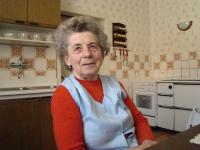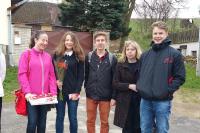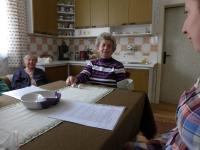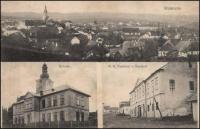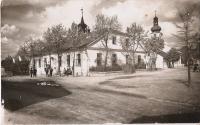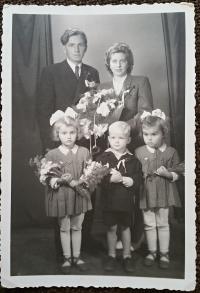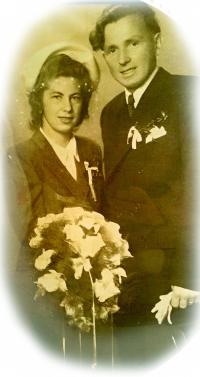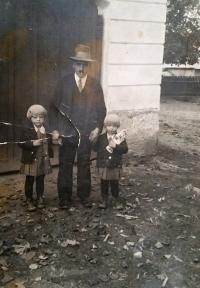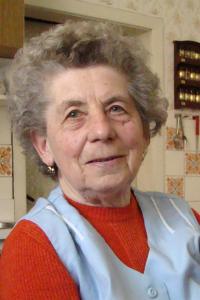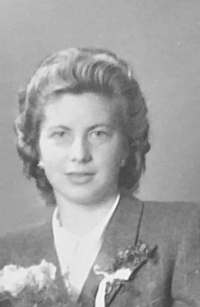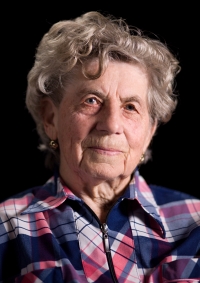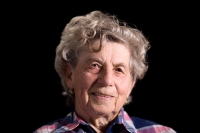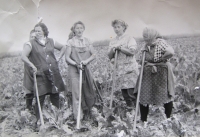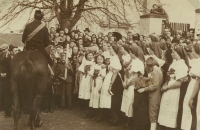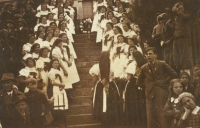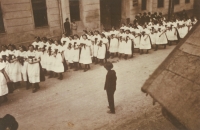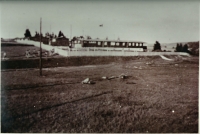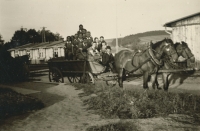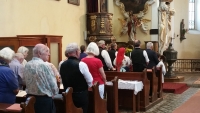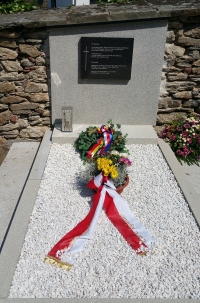All Germans, out!
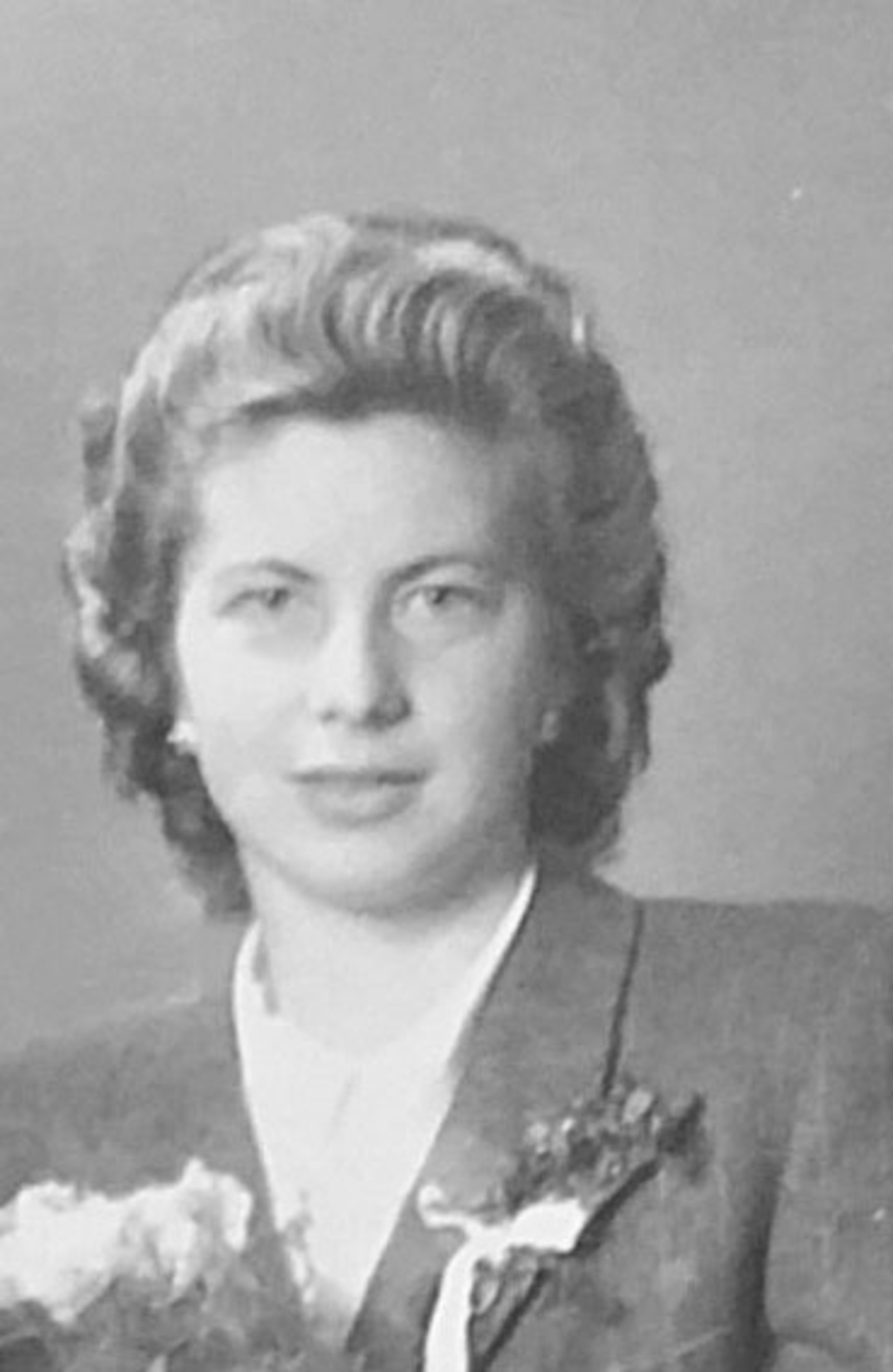
Stáhnout obrázek
Hermina Musilová, née Schebesta, was born in Stonařov, on her parents’ family farm, on 3 April 1928. The Schebestas were Germans. The witness attended primary school in Stonařov and then tended the farm with her parents. She experienced the Wehrmacht retreating through her village, liberation by the Soviet army, and the arrival of Revolutionary Guards. In 1946, seven months pregnant, she was deported to Germany with the rest of the family. The unborn child’s father, Miroslav Musil, was a Czech, and when the Schebestas left he took over their farm. In 1950 the authorities allowed the witness to return to Stonařov, where she then married Miroslav Musil. The following summer she gave birth to a daughter, Marie. In 1957 the Musils were coerced into joining their farm to the local agricultural cooperative. Until her retirement, the witness worked at the co-op’s cow barn. As of 2020, Hermina Musilová lived in Stonařov.
